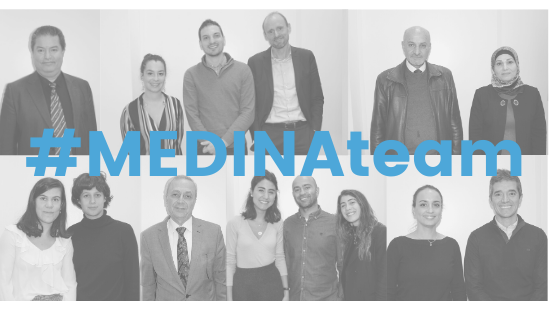Rencontrez l'équipe du projet MED-InA : épisode #4

Contenu disponible uniquement en anglais.
Let's meet the people who are involved in the MED-InA project, the people who work daily for designing our Mediterranean cities zero waste models, the people who embody the MEDiterranean INtegrated Alliance on waste for cities and citizens!
The MED-InA project has seven partners from five countries: here is our series of interviews for introducing each partner and its role in the project.
Fourth interviewee: Ghina Chammas on the behalf of the American University of Beirut in Lebanon. From AUB, two entities are involved in the project: the Nature Conservation Center and the Suliman S. Olayan School of Business.
What will be your role in the MED-InA project?
AUB will be playing a leading role in capturing innovation and leveraging a circular model through entrepreneurial competition in the MED-InA project (Work Package 6). Simply put, the AUB team will support startups from Spain, Jordan, and Tunisia to work on innovative solutions to tackle waste management. The AUB will be also responsible for advising on the Zero Waste methodology and its strategic communication adaptation to local cultures.
What added value the MED-InA project will bring to the waste management sector?
The Zero Waste methodology will place the citizens at the heart of the process and will strongly value a “low tech-low cost" approach by promoting in the South and reintegrating in the North traditional practices that generate little quantity of waste. It will be tailored to each territory. This work will be linked to concrete updates of municipal waste management plans and support to innovative circular economy businesses in order to act at a multi-level stage and create synergies.
MED-InA foresees the organization of a competition of Med start-ups on circular economy. How will work the competition?
AUB experts will work to identify the contextual barriers and enablers to circular economy start-ups in each territory by consulting with key figures effectively applying circular economy initiatives. Then, with the support of the three municipalities involved, the AUB team will select a total of three local incubators to receive sub-grant in accordance with a standardized procedure and scoring based on established criteria. Each incubator will in turn select and train four ventures to develop and deploy innovative waste management services and products centered on circular economy in each territory. AUB will support the incubation process and assist in training the awarded ventures on impact model, business model, and scaling. This initiative called CIRCLE (Capturing Innovation & Refuse Resources for Circular Leveraging through Entrepreneurial Coopetition) aims to stimulate the growth of circular economy and build cross-border relations through start-up exchange.
What is the interest of working at the Mediterranean level to improve waste management and circular economy?
Cities on both sides of the Mediterranean face important solid waste management challenges and increasing costs to collect and treat waste, including expensive investments in landfills or incinerators. The methodology for zero waste will be co-designed by the consortium partners, a transdisciplinary well-balanced operational structure.
Waste management is a complex multifaceted issue which is best dealt with using a transdisciplinary approach, characterized by cross-fertilization of environmental and social perspectives as well as participatory strategies.
See you next Wednesday to meet another MED-InA partner !







